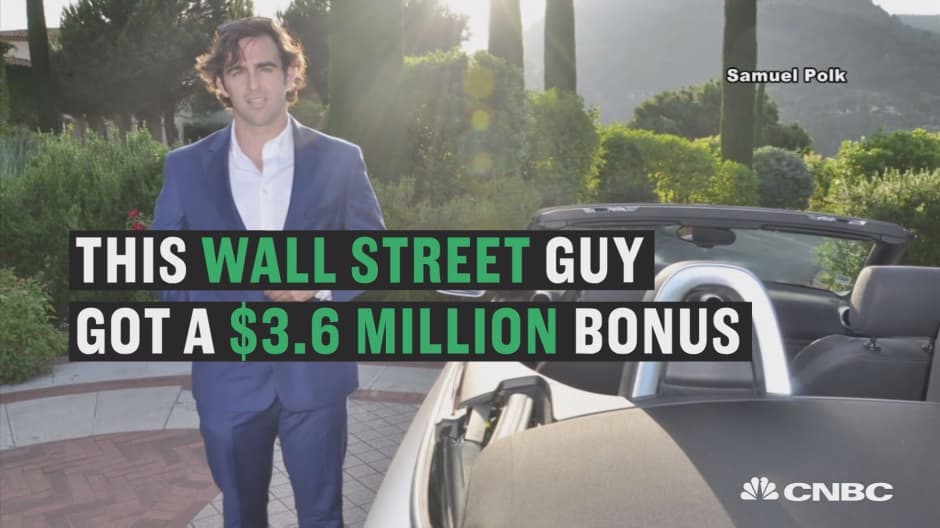For most people, getting a $3.6 million bonus would be a day to celebrate and high five a bunch of people. For Sam Polk, it made him mad.
Why?
Because it wasn't enough.
"I wanted more money for exactly the same reason an alcoholic needs another drink: I was addicted," Polk wrote in a 2014 New York Times op-ed that went viral.
Polk turned that op-ed into a book of the same title, "For the Love of Money," that just came out today.
The memoir is about Polk's meteoric rise on Wall Street during the go-go years of the new millennium. He climbed the ladder from summer intern at Credit Suisse to bond and credit-default-swap trader at Bank of America and then to the top rung of a behemoth hedge fund. He was a young, well-intentioned rising star on the Street, but a Boy Scout he was not.
From a very early age, Polk believed that being rich was the most important thing in the world — a lesson learned from his father, a man Polk describes as a "modern-day Willy Loman" type. He struggled with overeating/bulimia, alcoholism and drug addiction almost instantaneously as he first stepped foot onto Columbia University's campus. He was arrested twice and suspended before completing his sophomore year. In short, he was an addict in every sense of the word, so naturally he gravitated toward a career on Wall Street.
Although there was some luck involved in finding his fortuitous path to finance, he was aggressive, sharp and wouldn't quit. After a summer internship at Credit Suisse he didn't receive an offer for the following year. So he hit the phones in desperation to find a new lead. He called and left a message for one managing director every day for three weeks before getting a call back, which eventually resulted in his first job.
During his second year on the Bank of America bond desk, he got his first big trading idea. He bought Western Mining bonds. In his opinion, they were priced at a discount due to an imminent takeover. When a company gets acquired, the debt of that company becomes the debt of the acquiring company. That usually is positive for the price of the bonds, but one of the suitors was a debt-laden company. So, if that company won the bidding war, the price would plummet.
Convinced the debt-laden company wouldn't win the bidding war, Polk put on a $20 million position; which is a big deal for a rookie trader. But then a client came in as a seller and his position grew to $60 million and eventually $100 million. Now, it wasn't just his reputation at stake — his job was, too. Soon, fear kicked in, but it was mixed with a shot of adrenaline. He likened it to the feeling you get right before you get into a fist fight or scoring a giant bag of cocaine. He loved the rush.
Days passed without a headline scrolling across the tape which created sleepless nights. If Polk was wrong, he potentially could lose $5 million or $10 million. Finally, a week later, he saw the news: The debt-laden company hadn't won the bidding war. Polk just bagged his first seven-figure profit. And his image skyrocketed in the eyes of his peers. He went on to reach higher highs all the way until he walked away from it all.



